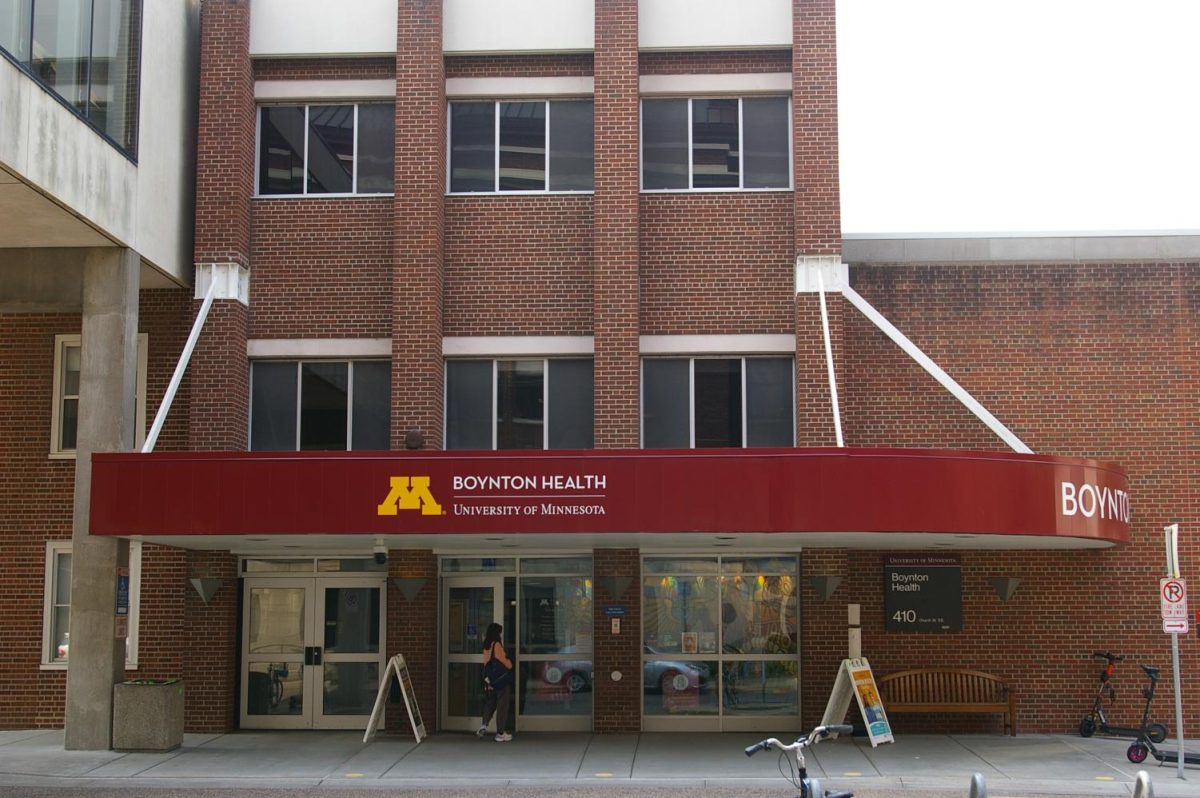Mental health services on campus are an integral facet of student support. From finals to interpersonal relationships, students have a lot to juggle in their day-to-day lives. Consistent access to these services can make a heavy emotional load easier to bear.
Universities have placed a renewed emphasis on mental health care on college campuses amid a crisis. A 2023 national survey found rates of depression and anxiety are at historic highs, with more than 60% of students meeting the criteria for at least one mental health problem. This is nearly a 50% increase since 2013.
These statistics are alarming and only amplify the need for accessible, efficient care at the University of Minnesota, as well as everywhere else.
Boynton Health, a primary provider of care at the University, has an extensive array of mental health services available to students. Therapy groups, medical management, intensive therapy and urgent counseling support are all among the services accessible to students, according to Kate Brekke, Boynton Health’s interim mental health strategic initiatives director.
Many of Boynton’s services are based on meeting urgent mental health needs via various targeted initiatives. For example, Let’s Talk provides online and in-person drop-in consultations designed to provide the space for students to think through and process pressing issues with a counselor. Boynton’s Urgent Mental Health Care initiative also allows students to visit a counselor from Monday to Friday between 8 a.m. and 4:30 p.m.
“We’re really committed to supporting and providing excellent care,” Brekke said. “We really do want to find ways to improve our access.”
While Boynton’s commitment to servicing mental health needs is evident, that does not mean there are not still improvements necessary to reduce barriers to accessibility for the student population.
The greatest obstacle between Boynton and meaningful care is the wait time, according to first-year University student Alexa Cornolo. After expressing severe mental health concerns in October, the earliest she fit into the schedule was two months later. When those two months finally passed, her first appointment was a consultation — albeit an unhelpful and unproductive one.
In a post-publication email, Boynton said its “wait times are consistently lower than at community clinics. Students can be seen at Boynton Health same-day for urgent mental health issues, and the wait time for an intake appointment has been and continues to be less than 2 weeks throughout this academic year. Students can be seen at Student Counseling Services for individual therapy and group workshops without billing insurance.”
“When I was trying to talk to the guy consulting me, he kept reiterating that I needed to shorten what I was talking about,” Cornolo said. “He was saying it was going on too long of tangents about what I was upset about.”
Waiting two months to have your concerns minimized and shortened is an extremely harmful experience for those struggling with their mental health. Boynton’s intentions may be good, but they have failed to uphold their promises of accessible care.
After the consultation, two more months passed before a real appointment could be scheduled, according to Cornolo. In total, it took four months to schedule an appointment.
Revisions to Boynton’s system are extremely necessary to uphold campus mental health needs. Waiting four months for care in crisis conditions only serves to harm and worsen student conditions.
Reform is necessary. That starts with listening to students.
Making mental health care more accessible could be as easy as improving the Boynton website, according to fourth-year University student Dhruv Balasubramanian. The Boynton website is full of information, but it’s hard to find where to sign up for appointments and where to go for information. For students in an ongoing mental health crisis, this could be a barrier in a time of struggle.
“There absolutely should be more information on what the appointments are and like what you’re going to do with it,” Cornolo said.
Cornolo said she was confused by the consultations and did not know it was not a formal appointment. After a four-month wait period, needing a long-term therapist to rely on is a valid request.
A lack of access to insurance could also deter students, according to Balasubramanian. Scheduling an appointment at Boynton requires insurance details, which can be a deterrent for students whose parents are not supportive of therapy. In his experience, the hassle of requesting insurance documents pushed him to seek care elsewhere.
Insurance is a hefty barrier when it comes to accessing mental health services. Whether it’s a lack of familial support or a lack of insurance as a whole, this roadblock can prevent access to necessary care.
Forty-two percent of Americans viewed cost and poor insurance coverage as the primary barriers preventing access to mental health care. Nearly one in four Americans reported having to choose between getting treatment and paying for necessities, and one in five Americans reported having to choose between treatments for physical and mental health conditions due to insurance.
While mental health needs might not be as visible as physical ones, that doesn’t make them any less important. Lack of mental health access can not only worsen existing issues but can also create new ones. Depression, specifically, can increase the risk for many different health conditions, particularly diabetes, heart disease and strokes.
Mental health access is extremely important. While Boynton’s system is dedicated to meeting student needs, more adaptation is necessary for the evolution of this system.
Student mental health is vital to academic performance. Ensuring students receive the necessary support will require centering their voices and committing to change.
This article has been updated.














